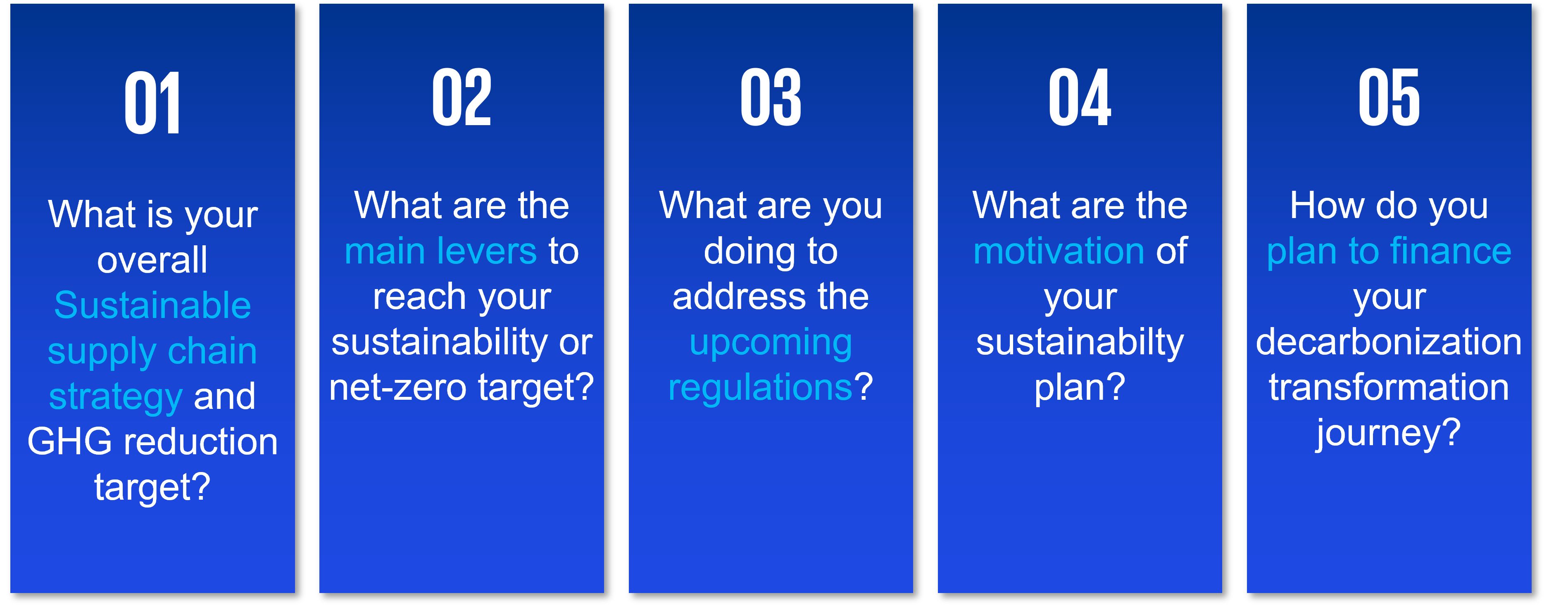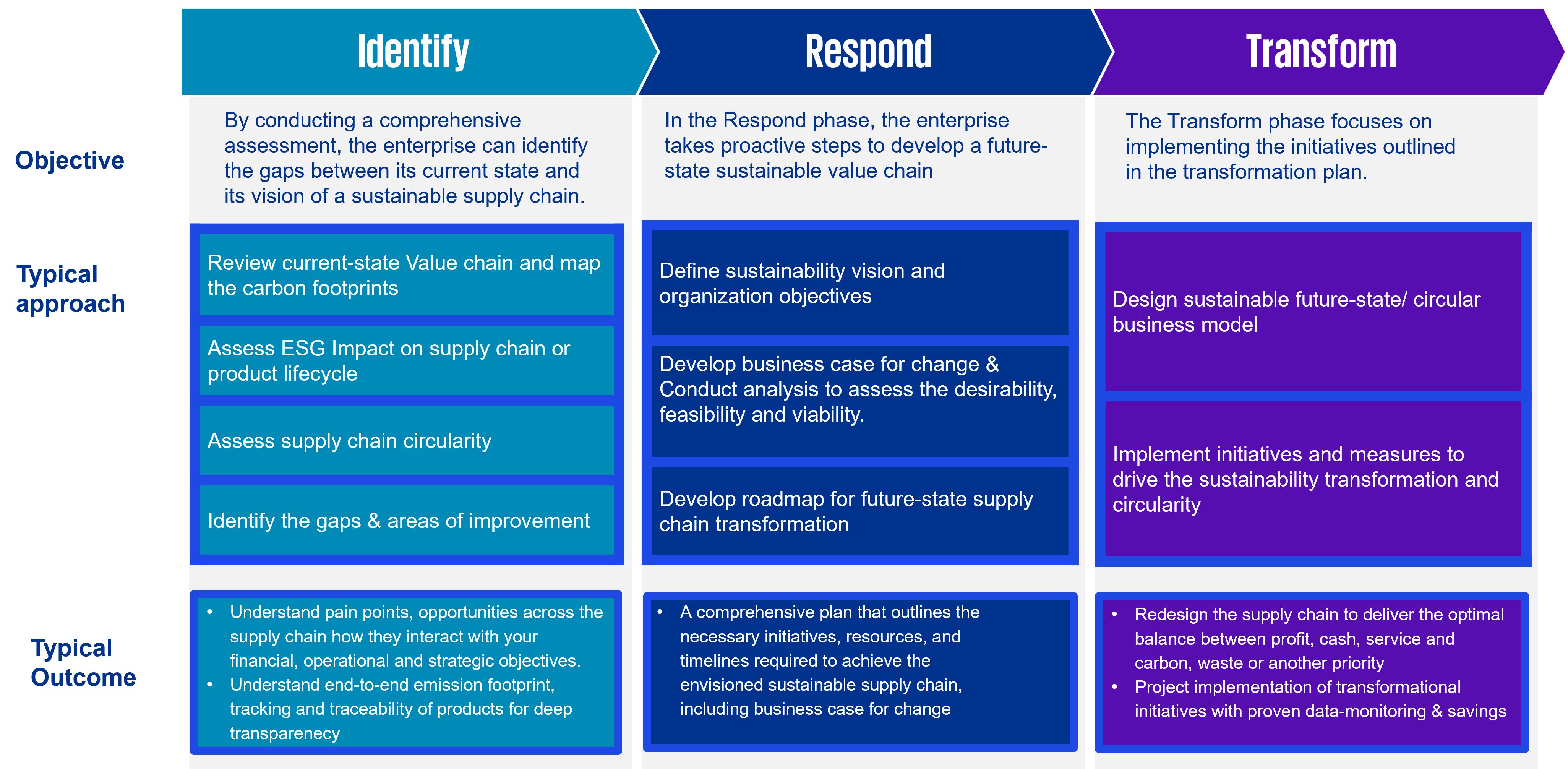Sustainable supply chains have risen to prominence as an indispensable realm of focus for companies dedicated to realizing transformative sustainability outcomes. These supply chains play a pivotal role in addressing climate change, promoting social justice, and fostering economic development. As integral parts of the global value chain, Vietnamese businesses are directly impacted by evolving global regulations and trends. Therefore, it is vital for these businesses to comply with sustainability regulations and meet the demands of environmentally conscious consumers in order to maintain market access and competitiveness.
Vietnam's Commitment to Sustainability
Vietnam has demonstrated its commitment to sustainability by pledging to achieve net-zero emissions by 2050 in 2021. This pledge showcases Vietnam's dedication to combatting climate change and has spurred significant steps towards decarbonization. Noteworthy examples include the implementation of Decree 06/2022/ND-CP, which focuses on mitigating greenhouse gas emissions, protecting the ozone layer, and establishing a domestic carbon market. Moreover, the release of Decision 01/2022/QD-TTg mandates the development and submission of greenhouse gas inventories by specified sectors and establishments to the Ministry of Natural Resources and Environment (MONRE). Additionally, Circular 01/2022/TT-BTNMT provides comprehensive guidelines for implementing the Law on Environmental Protection, with a specific emphasis on climate change and the newly enacted Law on Environmental Protection's Extended Producer Responsibility (EPR) regulations. These regulations offer detailed guidance on environmental protection measures, particularly in addressing climate change. Developing sustainable supply chains is paramount to fulfilling Vietnam's commitment and reducing the environmental impact of Vietnamese companies. By integrating sustainable practices into their supply chains, these companies can contribute to the country's climate change targets.
Impact of Global Trading Regulations and Trends
The impact of global trading regulations and trends is a complex challenge faced by businesses worldwide, including Vietnamese businesses. As the global trade landscape continues to evolve, it is essential for Vietnamese businesses to stay abreast of the latest regulations and trends to remain competitive and compliant. One prominent example is the European Union's Corporate Sustainability Reporting Directive (CSRD), which mandates comprehensive disclosure of a company's environmental and social sustainability performance. Vietnamese businesses are now under scrutiny and must demonstrate their commitment to sustainable practices to maintain their EU market access. Furthermore, regulations such as the Carbon Border Adjustment Mechanism (CBAM), Extended Producer Responsibility (EPR), and Extended Single Producer Responsibility (ESPR) pose additional challenges for Vietnamese businesses. These regulations aim to minimize environmental impact by internalizing the true cost of carbon emissions and ensuring responsible waste management. Compliance with these standards is indispensable for Vietnamese businesses to sustain their competitiveness in the global market.
In line with these efforts, the United States is also contemplating stricter regulations that require companies to conduct thorough due diligence on their supply chains to ensure adherence to human rights and environmental standards. This shift in regulatory focus underscores the importance of ethical sourcing practices for Vietnamese businesses aiming to retain their market share in the US. The ever-evolving global regulatory landscape presents both challenges and opportunities for Vietnamese businesses. Those businesses that can adapt to these changes will be well-positioned for success in the years to come.
Shifting Consumer Preferences
Shifting consumer preferences exert a significant influence on Vietnamese companies, as global trade trends and market preferences evolve. With sustainability gaining prominence as a mainstream concern, consumers increasingly favor environmentally friendly and socially responsible products. Vietnamese companies must therefore adjust their practices and supply chains to meet these evolving demands and embed sustainability throughout their operations.
Proactive Response for Competitiveness and Compliance
To remain competitive and compliant, Vietnamese companies cannot operate in isolation from global trading regulations and trends, given their interconnectedness with partners and customers worldwide. Proactively responding to these dynamics becomes crucial for these companies. Embracing sustainable supply chain management enables them to meet market requirements, reduce their environmental impact, and position themselves as leaders in sustainability.
In this context, companies need to ask themselves five key questions:

How we can help
Each company has its own unique supply chain challenges depending on the nature and location of their business. This is important to keep in mind because there is no one-size-fits-all solution when it comes to supply chain sustainability.
KPMG offers a number of different sustainable supply chain solutions. These solutions include:
Sustainable Procurement: This involves embedding sustainability criteria into the decision-making process of the procurement function. KPMG can help companies to identify critical sustainability issues for procurement purposes, conduct gap assessments, and develop recommendations for improvement.
Sustainable Supply Chain: KPMG can help companies to develop a roadmap for transitioning to a more sustainable supply chain. This roadmap would include a detailed assessment of the company's current supply chain, identification of opportunities for improvement, and a plan for implementation.
Value Chain Decarbonization: This solution helps companies to reduce their carbon emissions across all three scopes (Scope 1: direct emissions from owned or controlled sources; Scope 2: indirect emissions from the purchase of electricity, heat, or steam; Scope 3: all other indirect emissions, such as those from upstream and downstream activities). KPMG can help companies to conduct baseline assessments of their carbon emissions, develop decarbonization strategies and targets, and implement emissions measuring and reporting systems.
Circular Economy: KPMG can help companies to transition to a circular economy, which is a model of production and consumption that aims to eliminate waste and pollution. This would involve developing circular business models, implementing effective measurement systems to track and steer circularity, and driving supply chain transformation.
Our holistic approach
We will take a holistic approach to address all of your company's needs. Our approach considers the entire transformation journey, including value chain decarbonization and circularity operations. We will customize our approach to align with your unique vision and strategy.

Contact us

Quyen Anh Ngoc
Associate Director
Customer & Operations Consulting
KPMG in Vietnam
E nquyen@kpmg.com.vn

Nguyen Thi Hoang Yen
Associate Director
Customer & Operations Consulting
KPMG in Vietnam
E yenhnguyen3@kpmg.com.vn


